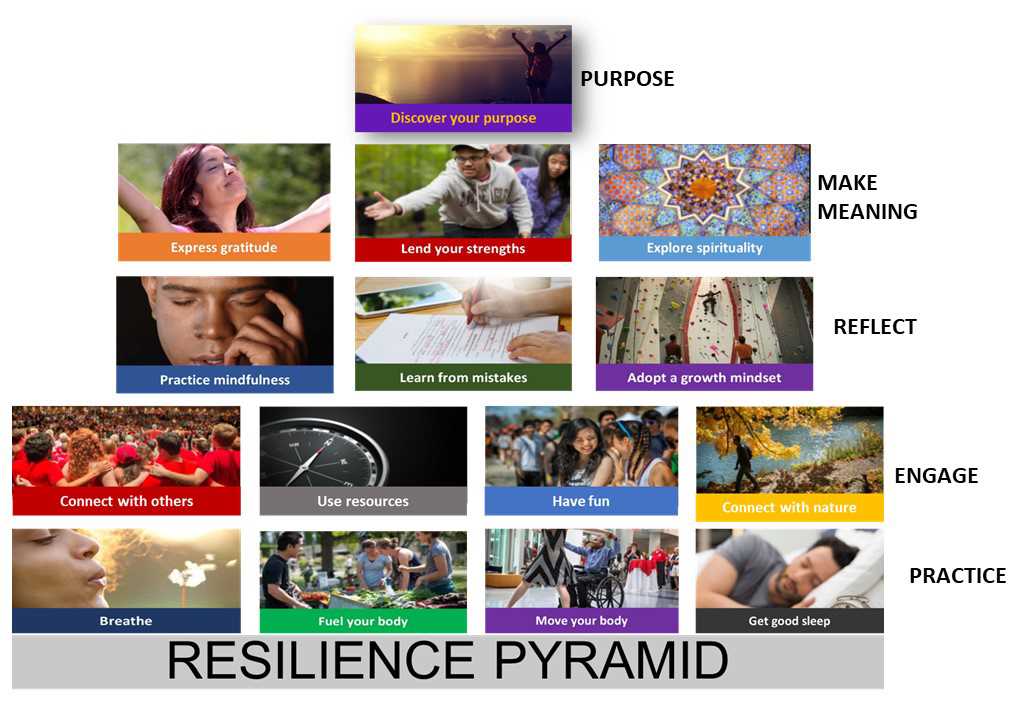
In today’s fast-paced and demanding world, stress has become an extended part of many students’ lives. The pressure to excel academically, fit in socially, and make important life decisions can be overwhelming. As a result, students are experiencing higher levels of stress, which can have detrimental effects on their mental health and overall well-being.
However, it is important to remember that stress is a normal part of life, and building resiliency can help students effectively cope with and bounce back from challenging situations. Resiliency can be enhanced through various strategies that promote self-care, emotional regulation, and positive thinking.
One effective strategy to improve resiliency in stressed students is to encourage self-care practices. This includes prioritizing activities that promote relaxation and rejuvenation, such as exercise, meditation, and hobbies. By taking time to care for themselves, students can better manage stress and prevent burnout.
Another strategy is to teach students emotional regulation techniques. This involves helping them identify and understand their emotions, as well as providing them with tools to manage and express their feelings in a healthy way. By developing these skills, students can effectively navigate through stressful situations and reduce the negative impact of stress on their mental health.
Furthermore, promoting positive thinking amongst students can significantly improve their resiliency. Encouraging them to focus on their strengths, set realistic goals, and practice gratitude can help shift their mindset from a negative to a more positive outlook. This can erase self-doubt and increase their confidence in facing challenges.
In conclusion, building resiliency in stressed students is crucial for their overall well-being. By implementing strategies that enhance self-care, emotional regulation, and positive thinking, educators and parents can help students effectively cope with stress and develop the necessary skills to thrive in today’s demanding world.
Understanding Resiliency in Stressed Students
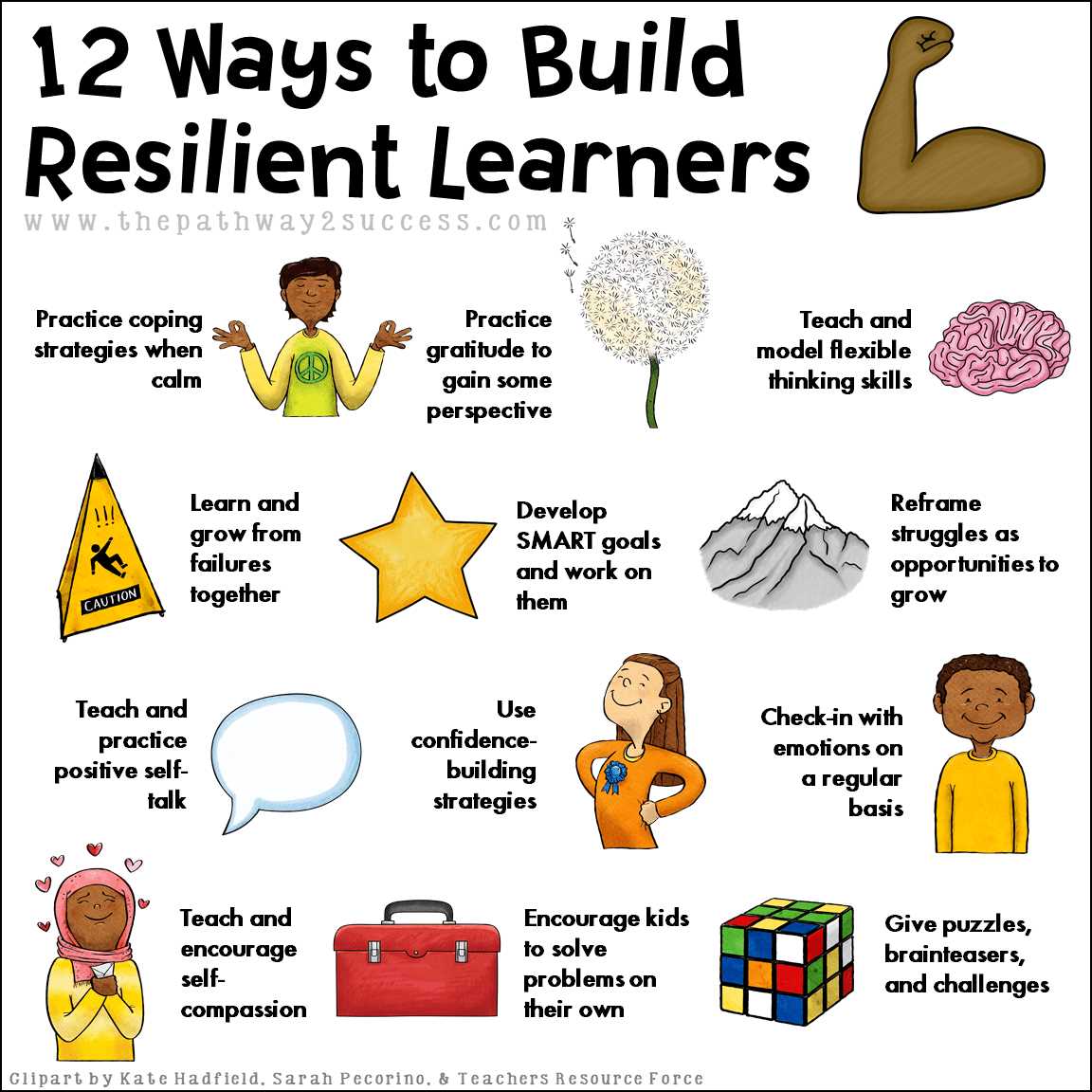
Resiliency is a crucial trait that allows individuals to bounce back and recover from challenging and difficult situations. In the context of stressed students, resiliency plays a vital role in their ability to cope and thrive amidst the pressures they face.
Stress has become a common experience amongst students, with academic demands, social pressures, and personal challenges contributing to their overall well-being. However, not all students respond to stress in the same way. Some may crumble under pressure, while others seem to thrive and excel despite the difficulties they encounter.
Resiliency, in this context, refers to the ability of students to adapt and overcome adversity. It is not about erasing stress or eliminating challenges, but rather about developing the necessary skills and mindset to navigate through them successfully.
Students who possess enhanced resiliency are more likely to view setbacks as opportunities for growth, rather than insurmountable obstacles. They are better equipped to manage stress and are more likely to seek support when needed.
Understanding resiliency in stressed students involves recognizing the importance of fostering a supportive environment that promotes resilience-building strategies. This can include providing access to mental health resources, teaching stress management techniques, and encouraging open communication amongst students.
By understanding the factors that contribute to resiliency, educators and parents can play a significant role in helping students develop and enhance their ability to bounce back from stress and adversity.
Importance of Resiliency

Resiliency is a crucial trait for students in today’s high-stress educational environment. With the extended hours of studying, demanding assignments, and pressure to excel, students often find themselves overwhelmed and stressed. This is where resiliency comes into play.
Resiliency allows students to bounce back from setbacks and challenges, enabling them to persevere in the face of adversity. It serves as a protective factor against the negative effects of stress, helping students maintain their mental and emotional well-being.
When students develop resiliency, they become better equipped to handle the various stressors they may encounter in their academic journey. Whether it’s a difficult exam, a disappointing grade, or a personal setback, resiliency helps students to not only cope with these challenges but also learn from them and grow stronger.
Moreover, resiliency plays a crucial role in erasing the stigma associated with stress and mental health. By promoting resiliency amongst students, we create a supportive environment that encourages open discussions about stress and mental well-being. Students feel more comfortable seeking help and support when they are experiencing stress, leading to better overall mental health outcomes.
In conclusion, resiliency is of utmost importance for students. It empowers them to navigate the stress and challenges they face, enabling them to thrive academically and emotionally. By fostering resiliency, we can create a generation of students who are better equipped to handle the demands of their education and emerge stronger from any setbacks they may encounter.
Building Emotional Strength
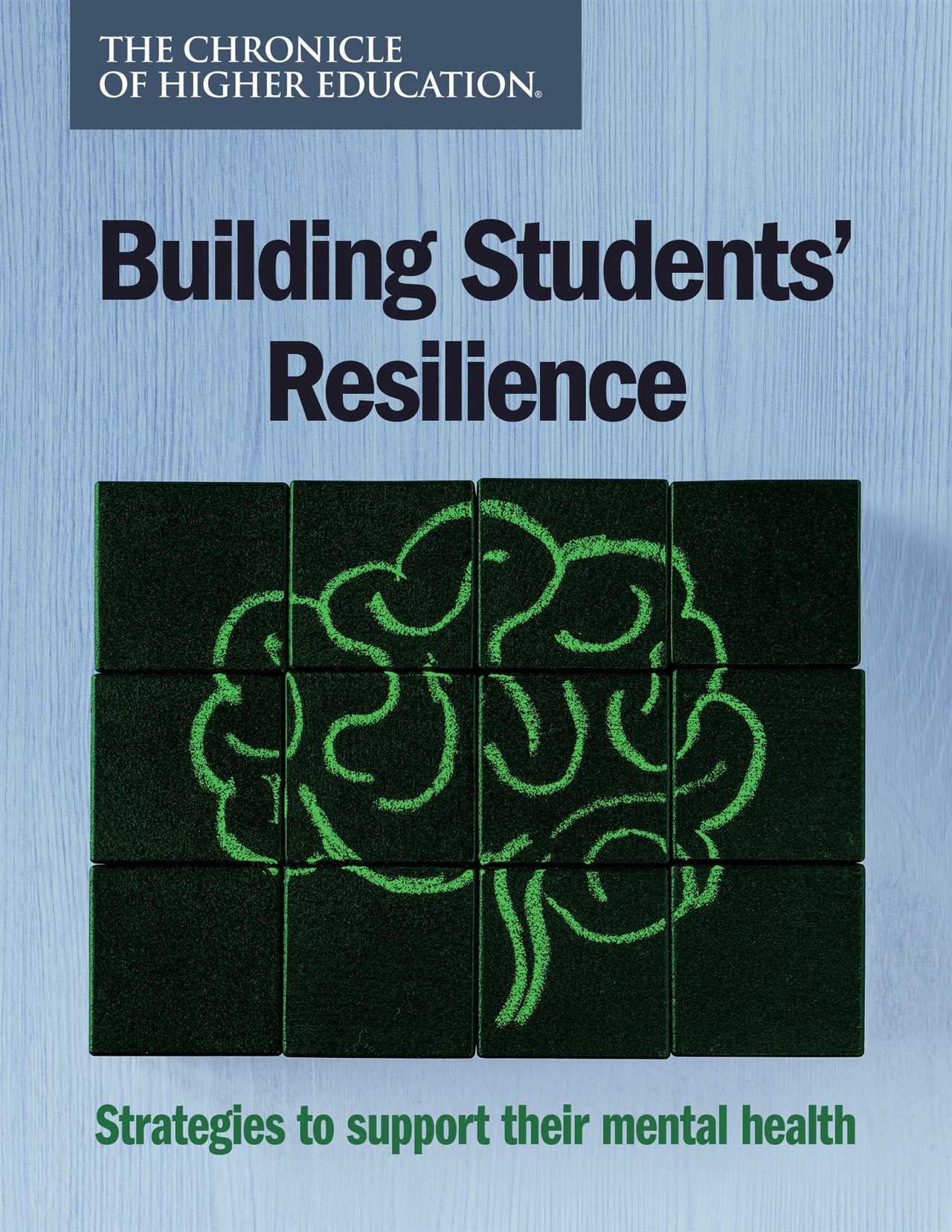
Students experiencing stress often face extended periods of pressure and uncertainty. This can have a significant impact on their emotional well-being and overall resiliency. Therefore, it is crucial to implement strategies that enhance their emotional strength and help them navigate through challenging situations.
One effective strategy is to encourage students to develop a strong support network. By fostering connections with peers, teachers, and counselors, students can find comfort and guidance during difficult times. Having someone to talk to and share their feelings with can make a world of difference in erasing feelings of isolation and building emotional resilience.
Additionally, teaching students coping mechanisms can greatly enhance their emotional strength. Techniques such as deep breathing exercises, mindfulness, and journaling can help students manage their stress levels and process their emotions in a healthy way. Encouraging regular exercise and a balanced diet can also contribute to improved emotional well-being.
Furthermore, it is important to teach students the importance of self-care. Taking time for oneself, engaging in activities they enjoy, and practicing self-compassion can help students recharge and build emotional strength. By prioritizing their own needs and practicing self-care, students can better cope with stress and adversity.
In conclusion, building emotional strength in stressed students is essential for enhancing their overall resiliency. By fostering connections, teaching coping mechanisms, and promoting self-care, educators can empower students to navigate through challenging situations and develop the emotional strength necessary to thrive.
Developing Coping Mechanisms
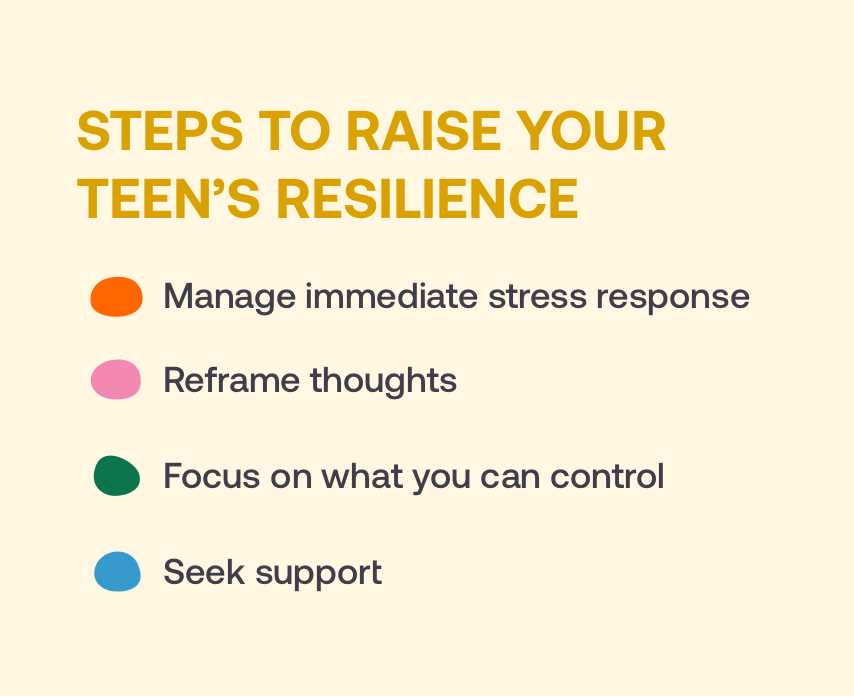
Experiencing extended periods of stress can have a detrimental effect on student’s mental and physical health. It is important to develop coping mechanisms to enhance resiliency and erase the negative impact of stress.
One effective strategy is to encourage students to engage in activities that help them relax and unwind. This can include practicing mindfulness and meditation, engaging in physical exercise, or pursuing hobbies and interests outside of school.
Another helpful coping mechanism is to teach students effective stress-management techniques. This can include teaching them how to identify and challenge negative thoughts, practicing deep breathing exercises, and learning time management skills.
Creating a supportive and inclusive environment amongst students is also crucial in developing coping mechanisms. Encouraging open communication and providing access to resources such as counseling services can help students feel supported and better equipped to handle stress.
Additionally, promoting self-care and self-compassion is essential in developing coping mechanisms. Teaching students the importance of taking care of their physical and emotional well-being can enhance their resiliency and ability to manage stress.
In conclusion, developing coping mechanisms is essential for students to effectively manage stress and enhance their resiliency. By encouraging relaxation activities, teaching stress-management techniques, fostering a supportive environment, and promoting self-care, students can develop the skills necessary to cope with the challenges they may face.
Factors Affecting Resiliency
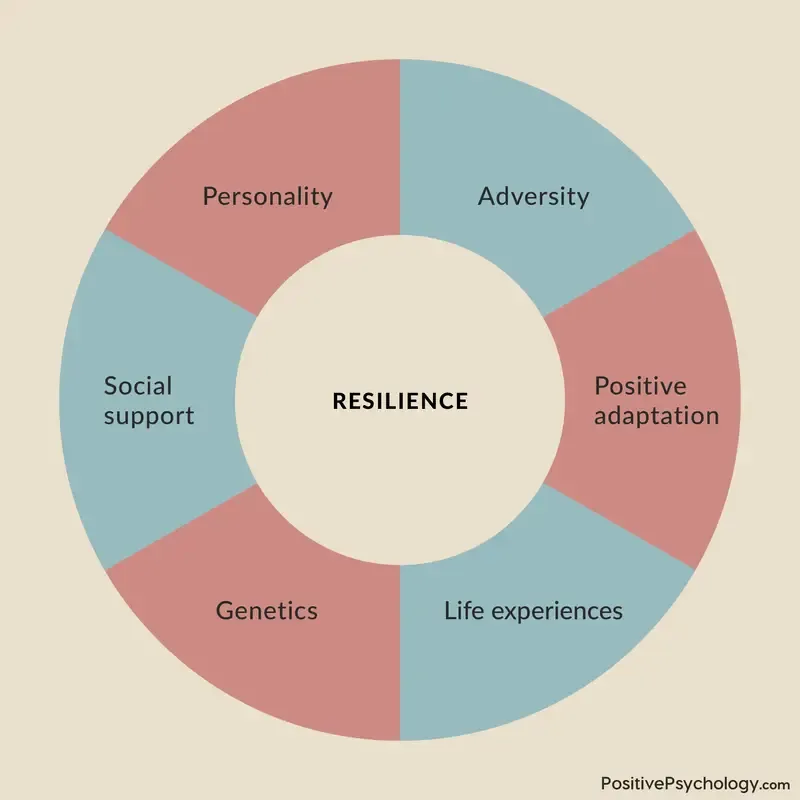
Resiliency is a crucial trait that can help students effectively cope with stress and bounce back from challenging situations. There are several factors that can either enhance or erode resiliency amongst stressed students. Understanding these factors is essential for developing effective strategies to improve resiliency.
- Social Support: Having a strong support system consisting of friends, family, and mentors can significantly enhance resiliency in stressed students. When students feel connected and supported, they are more likely to develop the ability to bounce back from stressors.
- Self-Efficacy: Students who believe in their own abilities and feel confident in their problem-solving skills are more likely to exhibit higher levels of resiliency. Building self-efficacy can be achieved through setting achievable goals, providing positive feedback, and encouraging independent thinking.
- Coping Strategies: The ability to effectively cope with stress is crucial for resiliency. Teaching students healthy coping strategies, such as deep breathing exercises, mindfulness techniques, and time management skills, can help them better manage stress and build resiliency.
- Positive Mindset: A positive mindset can greatly enhance resiliency in stressed students. Encouraging students to focus on their strengths, practice gratitude, and reframe negative thoughts can help cultivate a positive outlook and enhance resiliency.
- Adverse Childhood Experiences: Students who have experienced adverse childhood experiences, such as trauma or abuse, may have lower levels of resiliency. It is important to provide additional support and resources to these students to help them build resiliency and overcome the effects of their past experiences.
By addressing these factors and implementing strategies that promote social support, self-efficacy, healthy coping strategies, positive mindset, and additional support for students with adverse childhood experiences, resiliency can be effectively improved in stressed students.
Influence of Support Systems
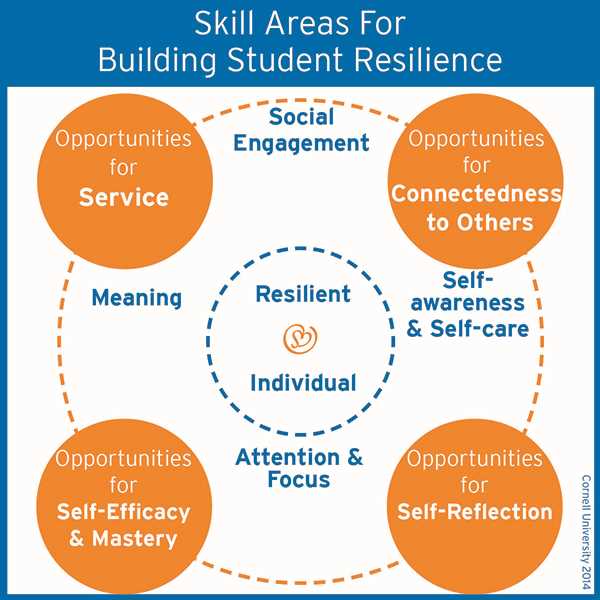
Extended support systems play a vital role in enhancing resiliency among stressed students. When students feel overwhelmed and are experiencing high levels of stress, having a support system in place can make a significant difference in their ability to cope and bounce back.
Support systems can take various forms, including family, friends, mentors, teachers, and counselors. These individuals can provide emotional support, guidance, and practical assistance, helping students navigate through challenging times. By having someone to talk to and lean on, students can feel less alone and more empowered to face their stressors head-on.
Furthermore, support systems can help erase the stigma surrounding stress and mental health. When students see others openly discussing their struggles and seeking help, it creates a more accepting and supportive environment. This, in turn, encourages students to reach out for support without fear of judgment or shame.
Research has shown that students with strong support systems are more likely to develop effective coping mechanisms and resilience. They are better equipped to manage stress and bounce back from setbacks, which ultimately leads to improved academic performance and overall well-being.
Amongst the support systems, peers can also play a significant role. Peer support groups and activities can provide a safe space for students to share their experiences and learn from one another. Through these interactions, students can gain valuable insights and strategies for managing stress, building resilience, and promoting positive mental health.
In conclusion, support systems have a profound influence on the resiliency of stressed students. By providing extended support and creating a supportive environment, these systems can effectively enhance students’ ability to navigate stress and overcome challenges.
Impact of Environment
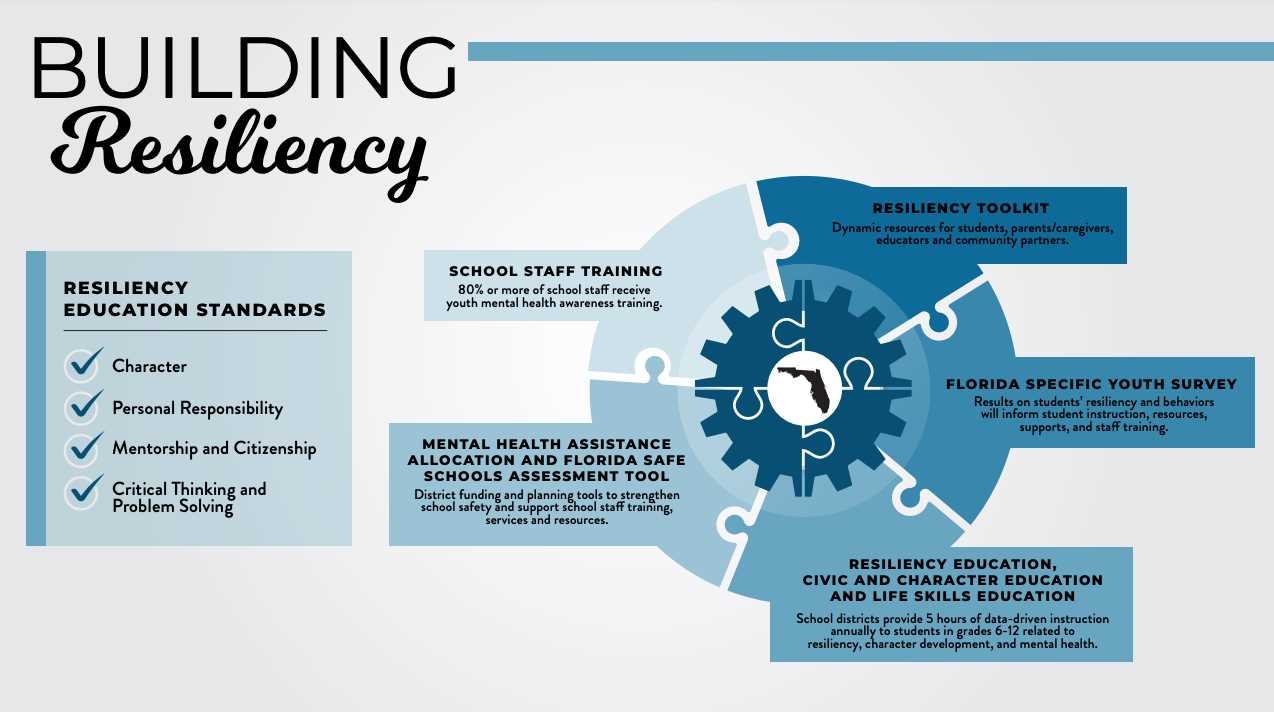
Students’ environment plays a crucial role in their resiliency and ability to cope with stress. An enhanced environment can provide the necessary support and resources for students to develop and maintain their resiliency.
When students are experiencing high levels of stress, their environment can either exacerbate or alleviate their stress levels. A positive and supportive environment can help students feel more secure and empowered, while a negative or unsupportive environment can further contribute to their stress.
Creating an environment that promotes resiliency includes providing students with a sense of belonging, emotional support, and opportunities for growth. This can be achieved through strong relationships with teachers and peers, as well as access to resources and activities that promote mental and emotional well-being.
Extended periods of stress can erode students’ resiliency, making it crucial for their environment to offer opportunities for relaxation and self-care. This can include designated spaces for mindfulness or quiet reflection, as well as access to physical activities and hobbies that help students unwind.
Furthermore, an environment that values and promotes resiliency can help students develop the skills and mindset necessary to overcome challenges. This can include teaching students problem-solving skills, encouraging a growth mindset, and providing them with the tools to manage stress effectively.
In conclusion, the impact of environment on students’ resiliency cannot be underestimated. By creating an environment that enhances their well-being and supports their resiliency, educators can play a crucial role in helping students navigate and overcome stress.

I am Patrina de Silva, a psychologist and mental health blogger in Sri Lanka. After obtaining psychology degrees from the University of Colombo and Monash University, I returned home to work as a counselor while also starting the popular blog “Pressy but Happy” to provide advice on psychological issues. Over the past decade, my empathetic articles have made my blog a leading mental health resource in the country. In addition to writing, I maintain a private therapy practice, frequently volunteer counseling time, and conduct seminars, driven by my passion for destigmatizing mental illness and educating the public on the mind-body connection. I strive to be an influential voice in my field through my compassionate approach.
